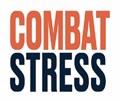Story
In December 2019 at the age of 32, I decided that if I was ever going to run a marathon it would have to be pretty soon. With the Manchester one scheduled for the following April I hoped I could train enough through winter to get a time of under 4 hours.
It was also a great opportunity to raise awareness and donations for an important cause. Sadly, a few months earlier, a gent called Ash who I went to school with, having fought many in Afghanistan as a Royal Marines Commando, lost his battle with depression and PTSD.
He was loved by many and had a truly kind and caring heart as well as one full of courage, so it was an honour to support the Combat Stress charity who specifically help veterans to live with the mental wounds after returning from conflict.
Unfortunately, due to the COVID-19 restrictions, this event was postponed twice and is now finally going ahead 18 months late! This has meant 3 separate training programmes, far too many long training runs, a wealth of aches, pains and injuries, and I can honestly say I am now very sick of running...however I am grinning and bearing it, slapping a smile on my face and still aiming for under 4 hours.
What has got me through this tough period has been the combined determination of achieving something for myself despite all the barriers whilst hopefully doing something helpful, in memory of a friend.
So, the awkward bit comes next...
If by reading this you feel motivated to either support my efforts in training for so long, or to help a wonderful charity that looks after those who sacrifice their mental health to protect us, please give what you can. Myself, Combat Stress and Ash would be very humbled by your support and no amount is too small.
Combat Stress are the UK’s leading charity for veterans’ mental health. For over a century, they’ve helped former servicemen and women deal with trauma-related mental health problems such as anxiety, depression and post-traumatic stress disorder (PTSD).
They’re on a mission to raise awareness that invisible injuries can be just as hard to cope with as physical ones. So when a veteran is having a tough time, they’re there to help them tackle the past and take on the future.
